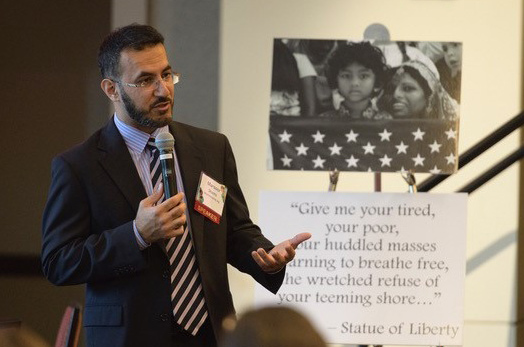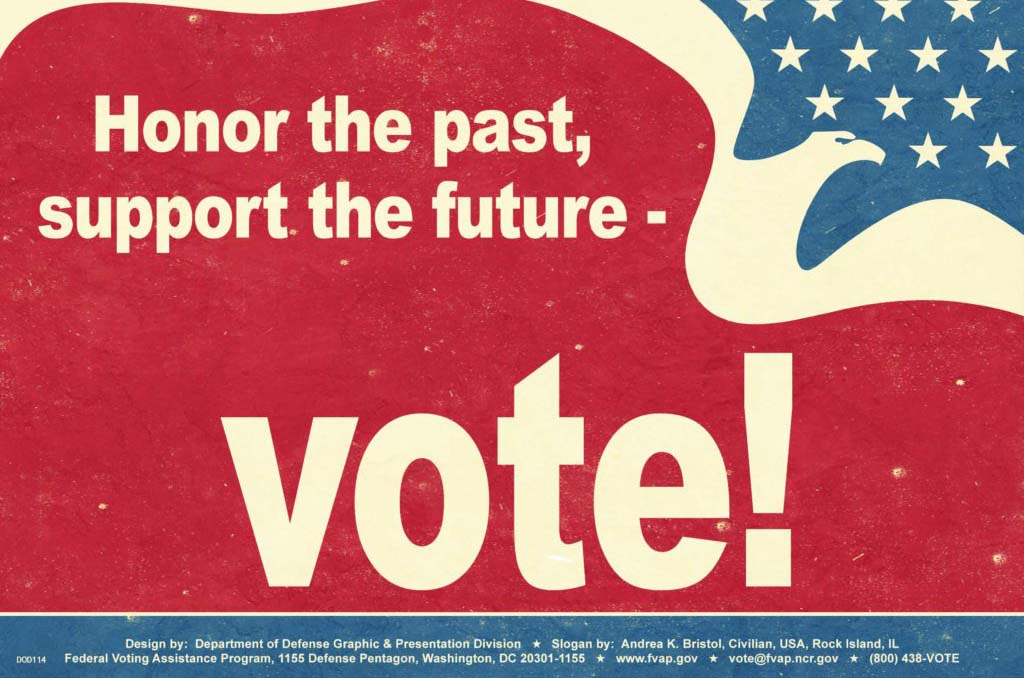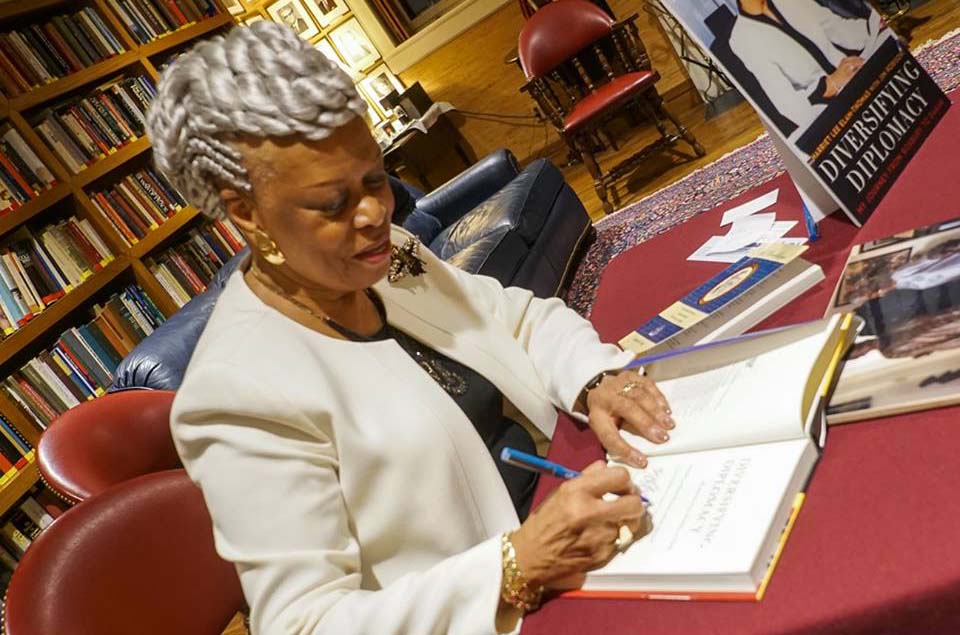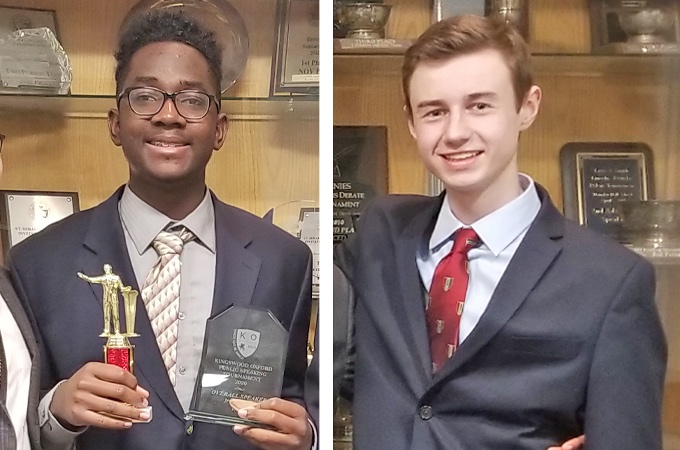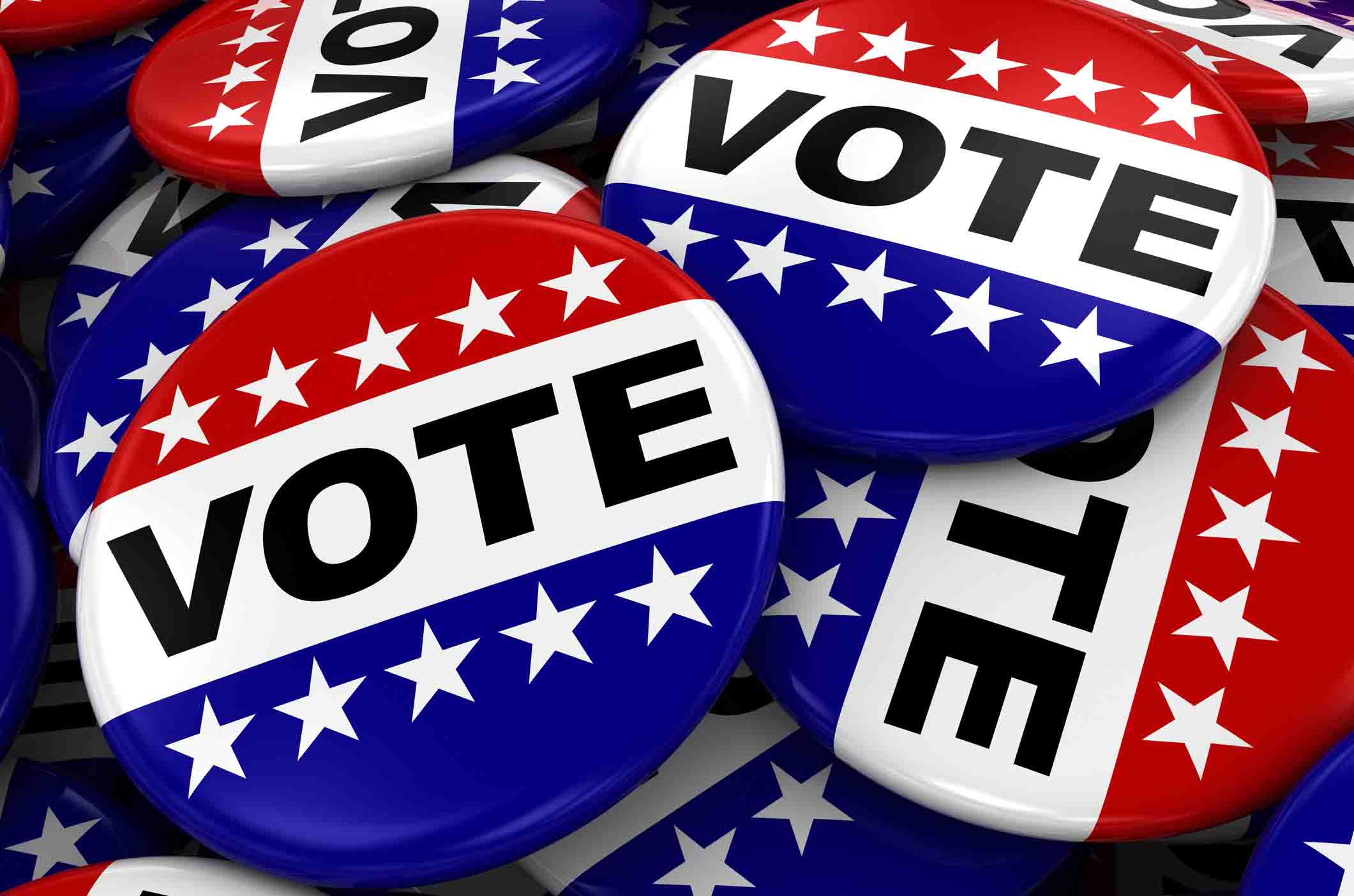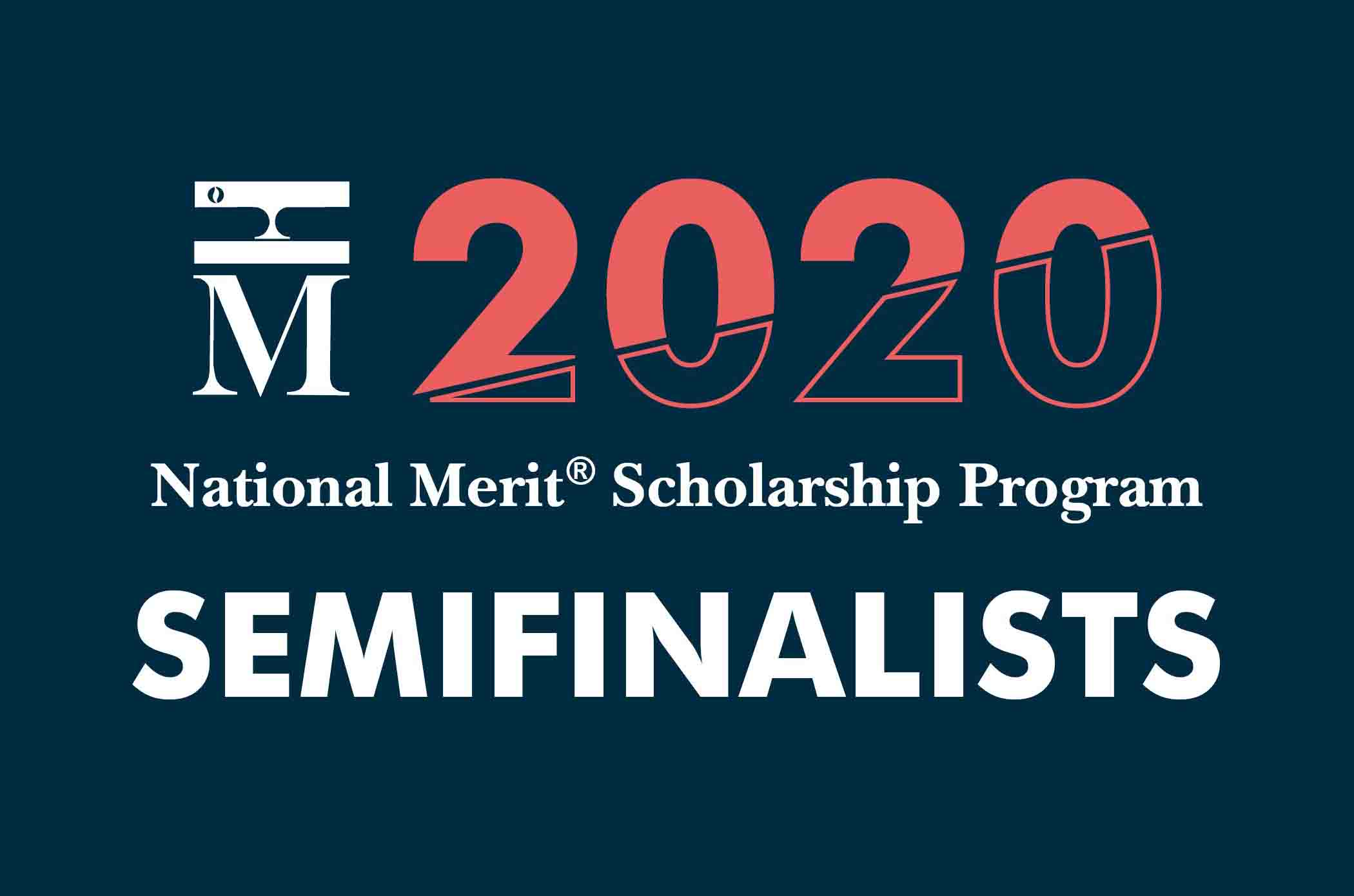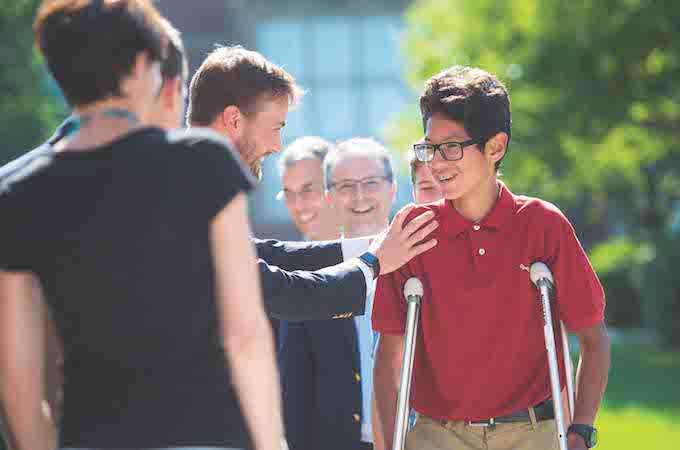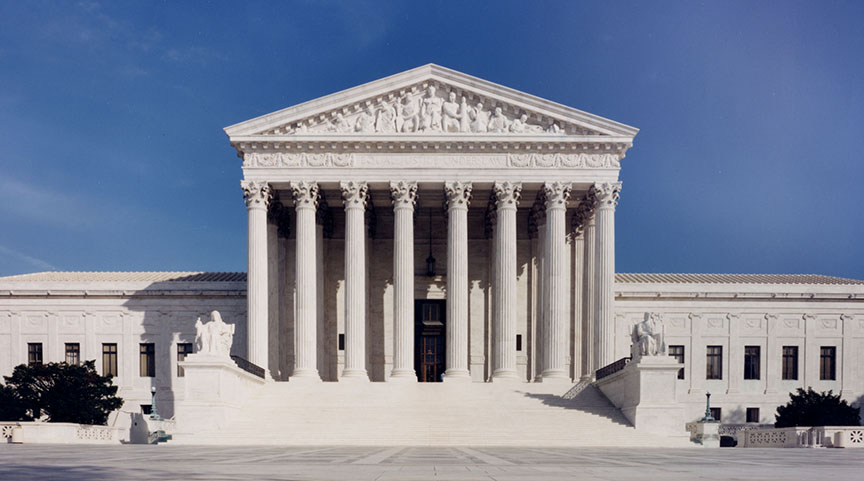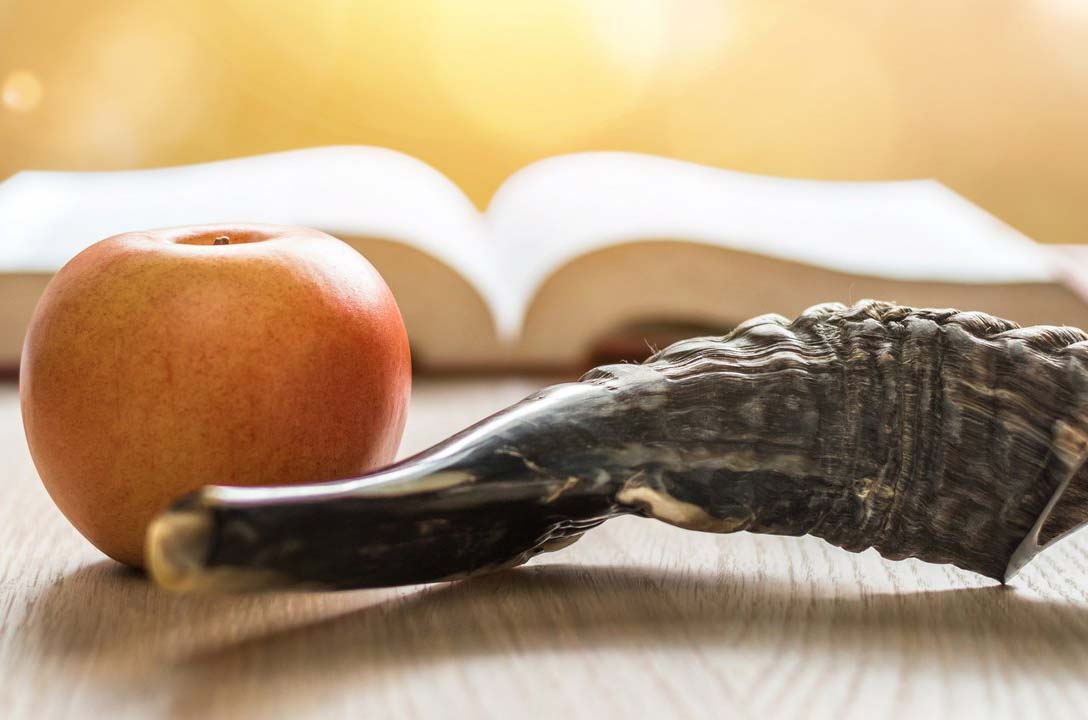On November 10, Roxbury Latin celebrated its annual Veterans Day Commemoration Hall—this year via Zoom, allowing alumni veterans from across the country to tune in. Headmaster Brennan welcomed students, faculty, staff, and guests as we, together, honored, “those veterans who are with us, and also all those others who have served our country in peacetime and wartime over the past 250 years. Their commitment, loyalty, and service to our country, to the values for which it stands, and for each one of us ought never to be forgotten.”
Featuring pre-recorded renditions of America, I Vow to Thee My Country, and God Bless America—as well as a moment for the Pledge of Allegiance, and the traditional passing of the peace—the Hall featured guest speaker Mansoor Shams. Mr. Shams is a U.S. Marine veteran, having served four years in the Marine Corps, where he attained the rank of corporal (non-commissioned officer) and received several honors. He is also the founder of MuslimMarine.org, where he uses his platform of both “Muslim” and “Marine” to counter hate, bigotry, and Islamophobia through education, conversation, and dialogue.
Dressed in traditional Pakistani garb, adorned with an American flag pin, Mr. Shams began by addressing some misconceptions related to his Muslim faith. He continued by answering questions related to his experience in the military, the relationships he formed, and his mission to help unify people in an increasingly divided world. He spoke about some of the conversations he had and individuals he encountered during his “Ask Me Anything” tour, during which he carried a simple sign across America (25 states to be exact), that read “I’m a Muslim and a U.S. Marine. Ask me anything,” to engage the public in conversation and dialogue.
Mr. Shams has been featured by PBS, NPR, BBC, and the New York Times, and has made national TV appearances as a commentator on CNN and MSNBC. He has delivered talks and presentations not only at schools and colleges, but also for the National Security Agency, the U.S. Marine Corps, and state government agencies across America.
He has led various national initiatives including the 29/29 Ramadan Initiative, in which he teamed up with Veterans For American Ideals, to have military veterans spend a night at the home of Muslim families across America during Ramadan, to encourage fellow Americans to get out of their comfort zones to get to know each other. Mr. Shams is a term member on the Council on Foreign Relations.
In his opening Hall remarks, Mr. Brennan listed those RL alumni currently in active duty—graduates ranging from the Class of 1976 to the Class of 2017. As is tradition, the Hall program included a list of the 37 Roxbury Latin alumni who were killed in service to their country, dating back to the Revolutionary War.
“Through these RL men we can draw a direct and impressive line to those WWII vets honored by the school several years ago, to four RL alumni casualties in the Civil War, and to RL’s most famous veteran, General Joseph Warren, Class of 1755, who lost his life at Bunker Hill. The inclination to serve our country is a natural extension of John Eliot’s admonition to serve as he said, ‘in Church and Commonwealth,’” said Headmaster Brennan.
You can view the entirety of this year’s Veterans Day Commemoration Hall here.

